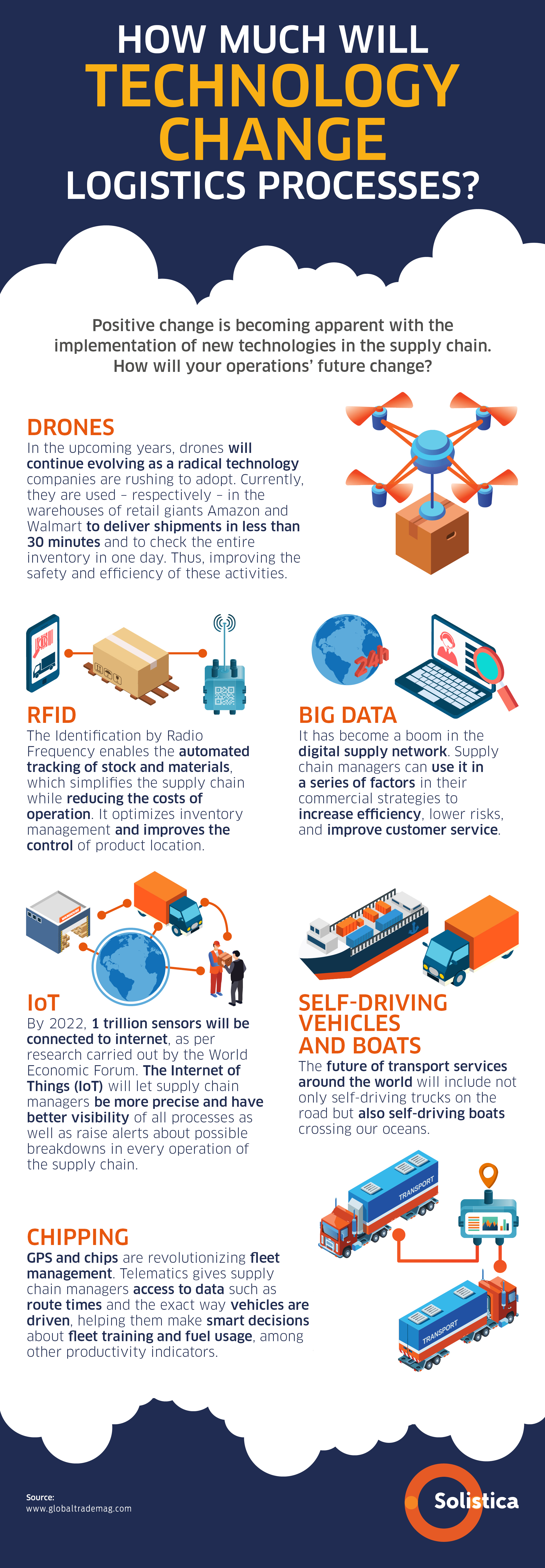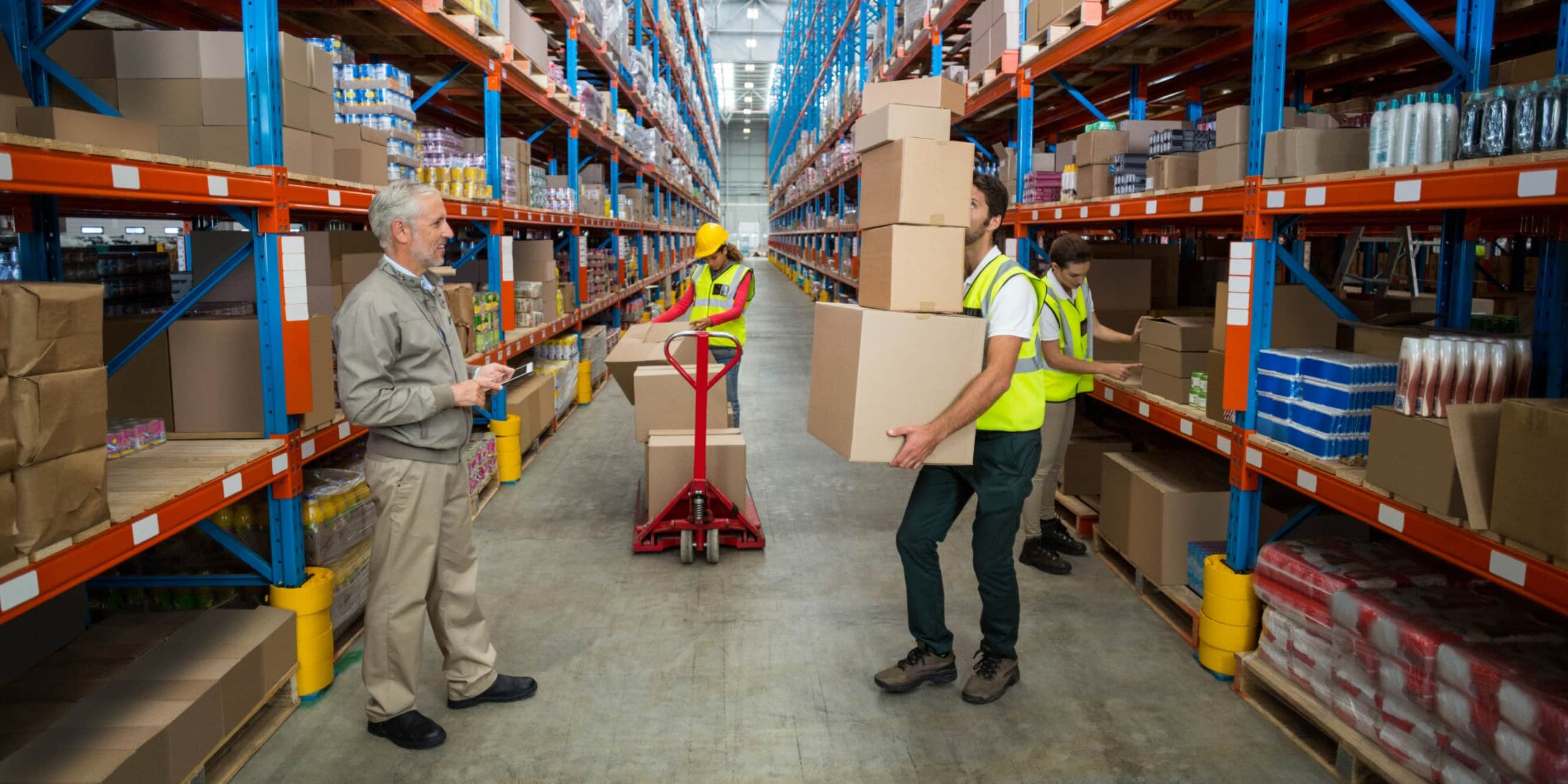As a result of technology, we have optimized the supply chain by decreasing costs and time, connecting suppliers and clients, improving inventory storage, and increasing safety.
New business models in diverse industries have forced companies to become innovative not only in their products and services, but also in their internal processes, where they have more opportunities to use new technologies that bring competitive advantages.
Thanks to business intelligence applied to logistics and to the immediate exchange of information offered by technology, companies now make sense of data from innumerable internal and external processes in a matter of minutes, instead of years as it was before.
The connectivity brought about by technology integrates whole logistics processes in an expedite, efficient, and transparent manner; looking to make precise decisions and offer a better customer service through tools we already are beginning to use.

Specialized logistics companies use advanced technologies to ensure connectivity and the visibility of their products throughout the whole supply chain, which gives clients safety and the ability to track shipments throughout the process.
The article published by Solistica in Forbes under the title “Connectivity in logistics: investing in technology optimizes the supply chain” explains how the company’s Intelligence Center monitors the productivity indicators, unit performance, maintenance, and customer service in different operation centers throughout Latin America to guarantee the connectivity of the whole supply chain via security systems that detect deviations and issue alerts to protect the drivers, vehicles, and cargo.
For companies to achieve true optimization, implementing technology in their logistics processes is not enough; they should also be able to understand the data gleaned from these tools so they can make accurate decisions that improve their indicators, profitability, and margins.






